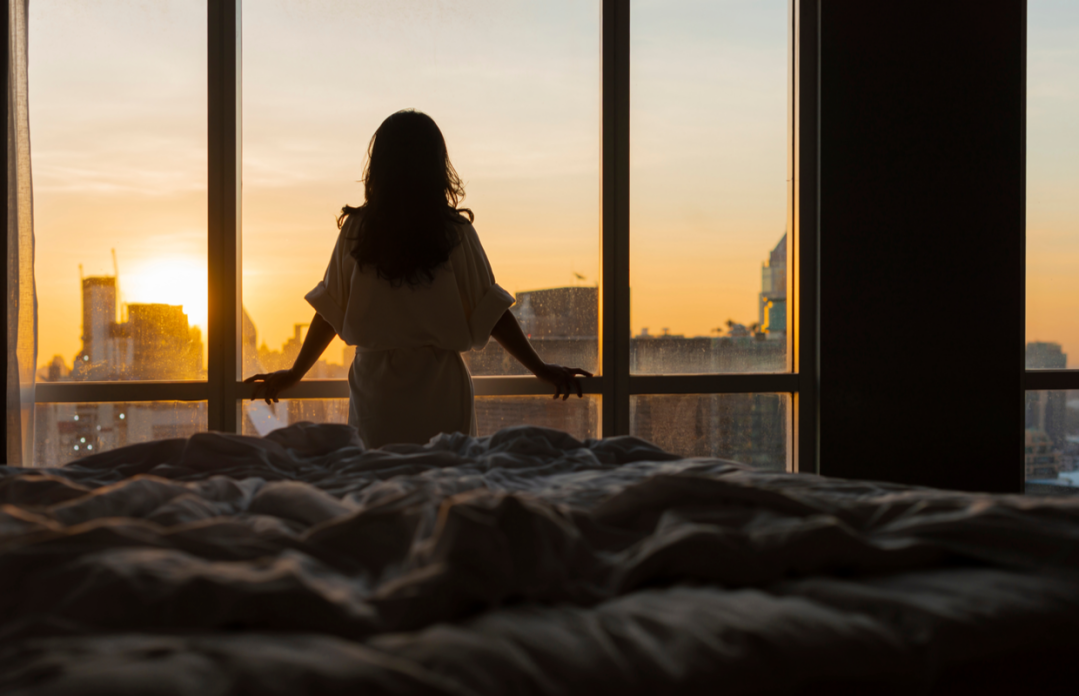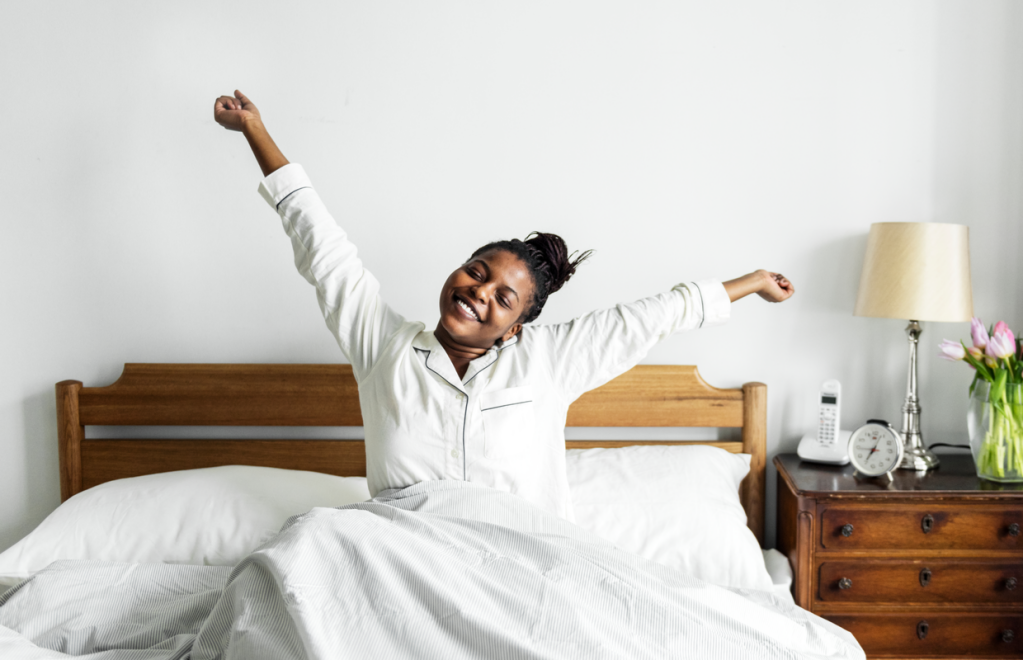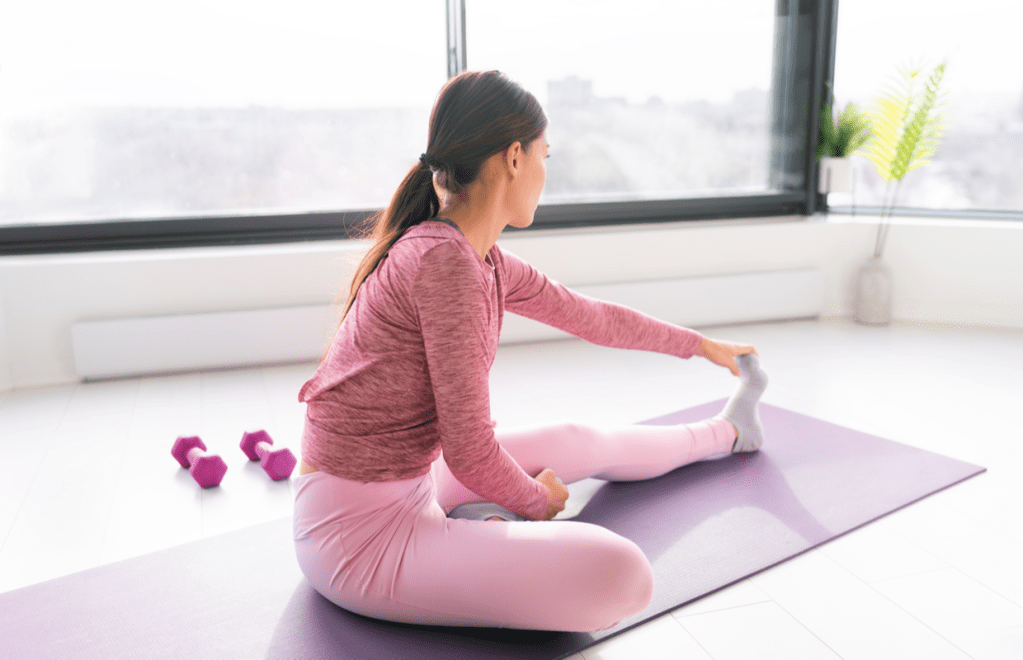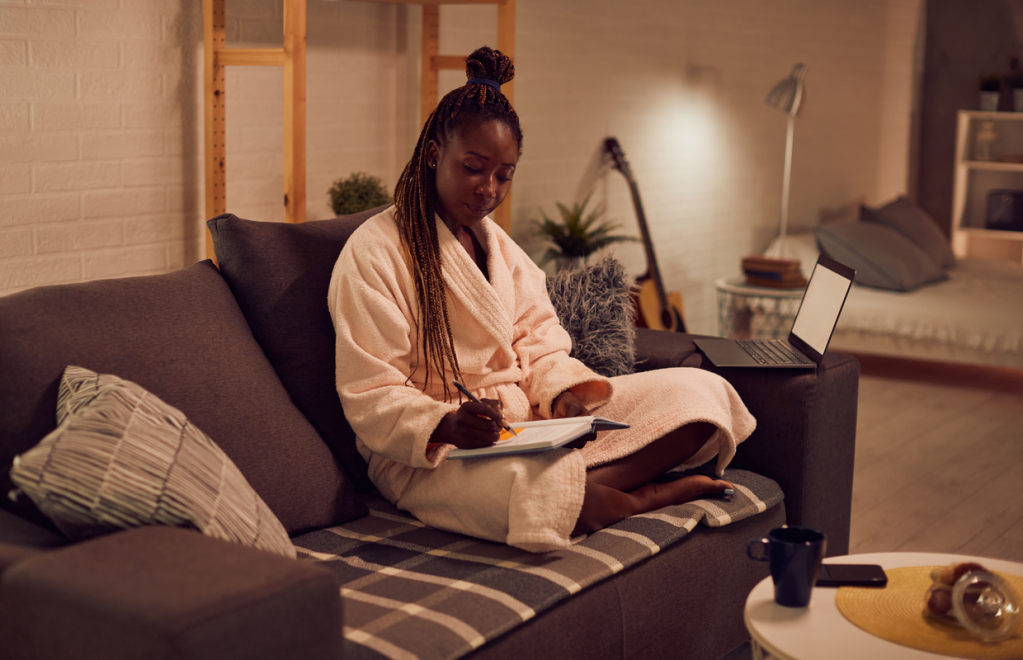How to reset your circadian rhythm and balance hormones
Reset your body clock and find inner balance with these daily routine ideas...

Did you know, an unbalanced circadian rhythm can wreak havoc on your hormones? This is especially true if you’re currently going through the menopause – a time when your hormones are fluctuating enough as it is. Luckily, you can learn how to reset your circadian rhythm and balance your hormones by making a few small changes to your daily routine…
Most of us live our lives way out of sync with the natural daily rhythms that our ancestors once lived by. We stay up late, zip through the day spending little time in nature and natural light, getting by on sugar and caffeine whilst exposing ourselves to so much artificial light our biological rhythms aren’t sure if it’s day or night.
This 24-hour overstimulated living disrupts the body’s internal clock, also known as the circadian rhythm.

What is the circadian rhythm?
The circadian rhythm regulates essential functions, including sleep, hunger, immunity, metabolism, and, crucially here, hormone cycles.
Learning how to reset your circadian rhythm isn’t complicated; it’s about timing and balance, and most of it is common sense.
Stick with it as closely as you can (without beating yourself up) and you’ll help to restore your hormone balance, catch up on much needed sleep and feel more refreshed, energised and focused.
How to reset your circadian rhythm:
7am
Wake up around this time, or earlier if necessary, so you don’t have to rush around. Resist turning on your phone and, instead, try doing something relaxing such as a short meditation.
You could also make time for a few deep breaths of fresh air and a dose of natural light, a cuddle in bed, or some gratitude practice (write down one thing you’re grateful for and one thing you’re looking forward to that day).

7-8am:
Eat breakfast within an hour of waking to keep your energy steady and your mind focused through the morning, and to avoid those blood sugar crashes that send you reaching for a sweet snack.
Have a hearty breakfast, including some protein and a healthy fat, such as egg with spinach and seeded bread, or muesli with seeds, berries and almond milk.
7-10am:
This is the best time for aerobic exercise and also for getting some natural light therapy. A brisk walk or run, five minutes of skipping or a short HIT workout will set you up for the day.
9am:
If you’re now a home-based worker, switch on your laptop or devices after your morning self-care routine and when your workday officially starts – not before!

10.30am:
Ultradian rhythms are short cycles through the day that last 90–120 minutes, in which we have bursts of productivity and focus followed by the need for 15 or so minutes of rest.
When you need a break, try going outside if possible, or at least look out of a window. Getting some sunlight in your eyes, especially during the morning, will help regulate energy, mood and hormones.
1pm:
Have a salad, soup or wrap with some protein, such as houmous or chicken or salmon, and lots of veg.
Last night’s leftovers can be repurposed into an easy lunch that will be healthier than a ready-made sandwich.
3-7pm:
Another good time to exercise to boost flagging energy levels, curb caffeine or sugar cravings and get you through the rest of the day.
Muscle tone goes up in the late afternoon and strength and coordination peak, so it’s a good time to go to the gym or lift some weights.

6-7pm:
Reset after work. Taking a mini restorative break between your workday and evening can help reduce cortisol and improve nighttime sleep.
Try a long shower, a brisk walk, a chapter of your book or 15 minutes of yoga – anything that helps you decompress and wind down.
7pm:
Eat lighter in the evening but don’t shun the carbs – eating healthy complex carbohydrates three to five hours before you nod off has been shown to improve sleep quality.
A serving of sweet potato or baked potato, brown rice or winter squash with some protein and good fat will stop you craving snacks in the evening or waking up hungry in the night.
9-10pm:
Turn the lights low to encourage melatonin production, which helps you wind down and feel sleepy. Light low lamps and candles, and put your phone on night mode. Have a warm bath or listen to quiet music or, if you want to watch TV, avoid anything too intense.
Talk to your partner and family, play a game or read together – intimate connection will encourage the release of oxytocin, which is an antidote to stress and cortisol.

10pm:
Do your worrying before you go to bed. Write out any anxieties in a book or journal before you go to sleep, as well as your to-do list for the next day, so you can rest with a clearer head.
10-11pm:
You ideally need seven to nine hours of good sleep every night to reset your natural clock. Try to have a regular sleep cycle where you go to bed and get up at roughly the same time each day, even on weekends. Aim to go to bed between 10 and 11pm and get up about 7am.
5 tips to successfully reset your circadian rhythm:
- Make changes gradually and don’t stress if you don’t manage it all.
- Slow it all down. Rushing around keeps us in constant fight-or-flight mode.
- Even a single glass of wine can cause a disturbed night. If you are going to drink alcohol, choose drinks mixed with sparkling water, and don’t drink too close to bedtime.
- Sleeping late on weekends is tempting, but can give you what experts call ‘social jet lag’, and it can take days to reset.
- If you have sleep problems, aim for a one-hour digital detox before bed; you’ll quickly notice a difference.
Find out more about balancing your hormones with your lifestyle in Hormone Intelligence by Dr Aviva Romm (HarperCollins, £20).
More inspiration: How to cope with emotions during menopause
Words: Rebecca Frank





